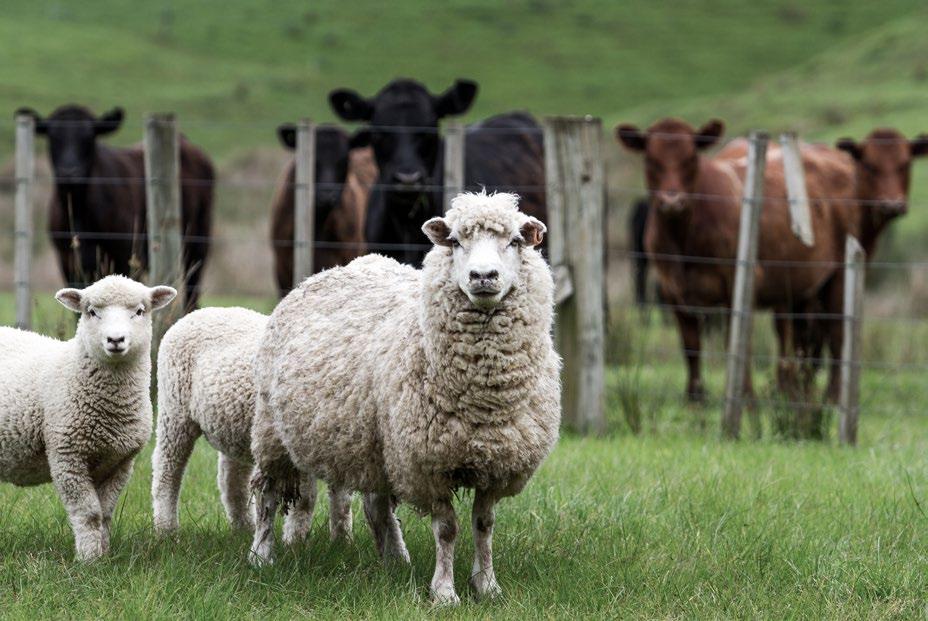
2 minute read
Beyond Faux / The Sustainability of Sheepskin
When it comes to the ongoing debate between natural sheepskin and faux fur, genuine sheepskin products offer a multitude of advantages over their synthetic counterparts.. While comfort, durability, insulation, and hypoallergenic properties are just the beginning, the environmental benefits of choosing natural fibres cannot be overlooked. Let's dive into some compelling facts that shed light on why sheepskin triumphs over faux fur in terms of sustainability:
1. Renewable and Sustainable Resource: Sheepskin is a remarkable example of a renewable, recyclable, and sustainable resource. At Fibre by Auskin, our sheepskins are obtained as a by-product of the food industry, minimising waste and maximising the utility of these valuable materials.
2. Biodegradability and Circular Fibre: Sheepskin, primarily composed of wool, is 100% natural, renewable, and biodegradable. Unlike synthetic faux fur, which is derived from nonrenewable resources such as polyester, modacrylic, and acrylic fibres, wool follows a circular lifecycle. As a biodegradable material, wool does not contribute to the microplastic pollution plaguing our oceans and land. On the other hand, faux fur can take hundreds of years to decompose.
3. Concerns Surrounding Recycling: While recycling has been promoted as a solution to combat plastic waste, recent research has revealed a concerning aspect. Recycling plastics and synthetic materials may unintentionally release significant amounts of microplastics into the environment. A study published in the Journal of Hazardous Material Advances found that a recycling plant discharged large quantities of microplastics both before and after implementing a filtration system. This revelation raises questions about the unintended consequences of recycling synthetic materials.
4. Non-Renewable Resource Usage: Approximately 8% of global oil production is dedicated to manufacturing plastic items, including synthetic and faux fur products. Oil, being a non-renewable resource, contrasts with the sustainable, renewable, and biodegradable nature of natural sheepskins.
5. Energy Efficiency: Sheepskin products should not be tumble dried due to potential damage to the fibres. Instead, most sheepskin products should be dried flat or linedried. Not only does this method require zero electricity consumption, benefiting the environment, but it also contributes to reduced energy costs for consumers.
6. Longevity and Value:
Opting for natural sheepskin is a wise choice in terms of durability and longevity. Unlike faux fur, which often loses its appeal relatively quickly and requires frequent replacements, genuine sheepskin products stand the test of time. By investing in highquality sheepskin from the beginning, you can avoid the need for repetitive purchases of inferior alternatives, ultimately saving money in the long run.
In a world increasingly focused on environmental concerns and sustainability, it is vital to have a transparent approach to consumer choices. When it comes to the natural versus synthetic debate, sheepskin's sustainability credentials speak for themselves. Choose sheepskin, embrace its eco-friendly attributes, and experience the remarkable benefits of a truly sustainable material.
Sheepskin
Renewable and sustainable resource
Biodegradable
Comfort and durability
Hypoallergenic
Environmental-friendly drying
By-product of the food industry
California (USA) recently banned the sale and manufacture of fur. This law specifically excludes sheepskin and cowhide from the legislation. The ban states that "Fur product" does not include deerskin, cowhide, sheepskin, or goatskin with hair attached. Sheepskin, being tanned wool on leather, is not considered fur under the California Fur Ban. Animals farmed solely for their fur, like sable, mink, and chinchilla, are banned.
Faux Fur
Derived from synthetic materials
Slow decomposition
Microplastic pollution from recycling
Limited durability
Potential environmental impact during production





